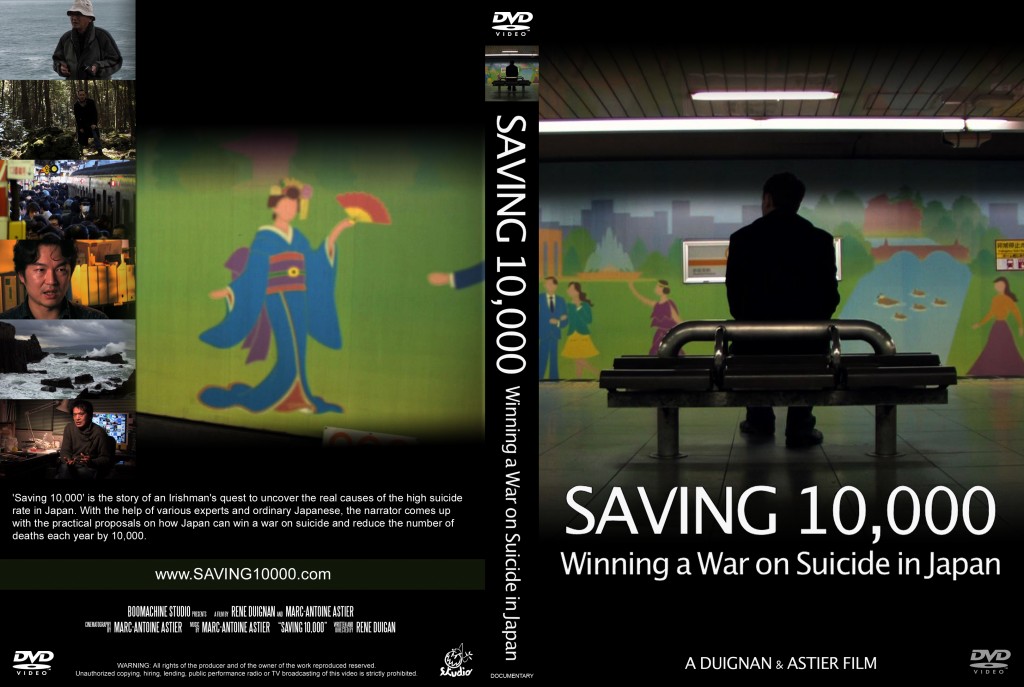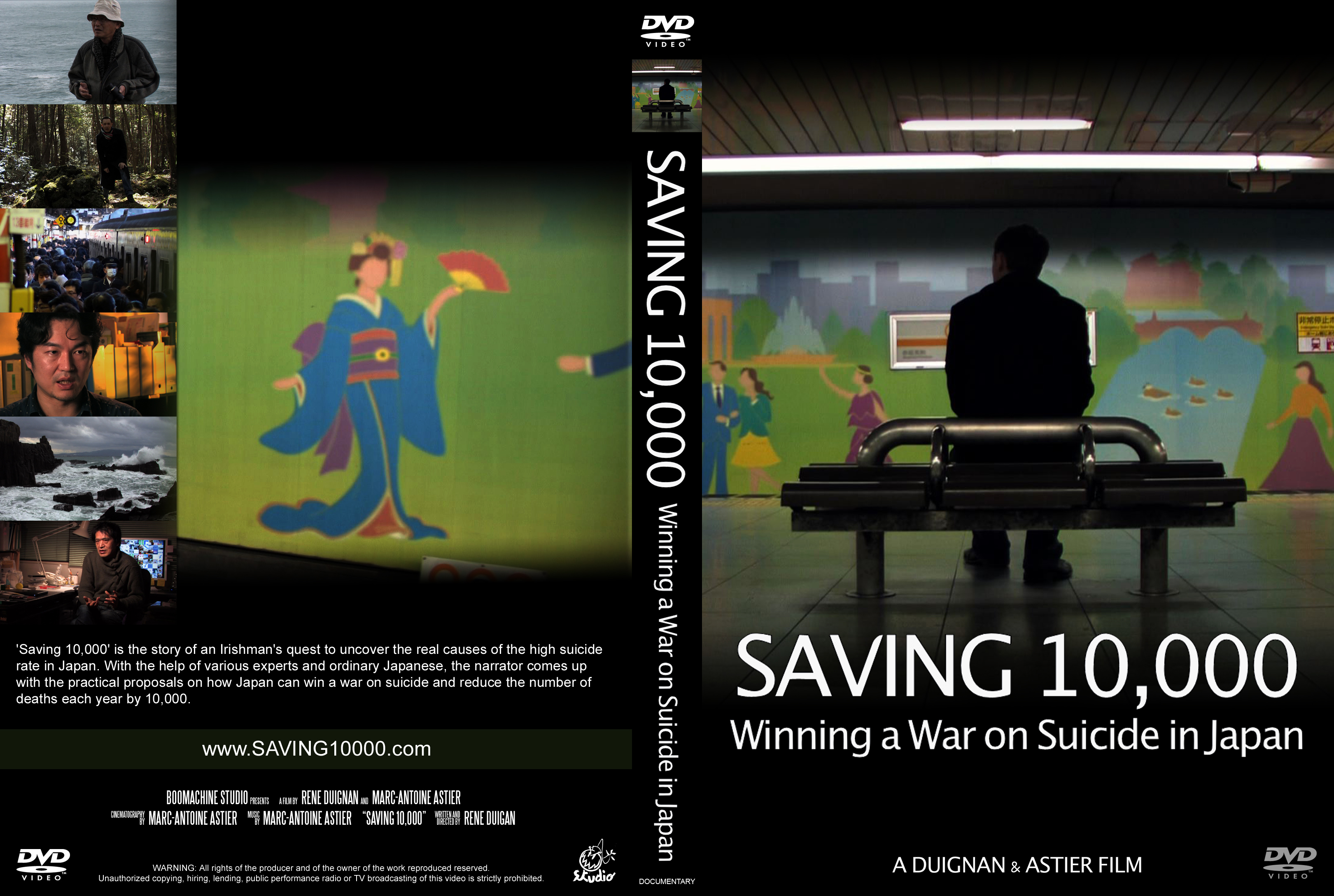
He said that, the Diet screening last night was opened by MP Hosono and closed by MP Renho, who as a former minister in charge of suicide prevention gave the movie a great review. “When I announced that I was giving the movie away for free online, it sparked a huge round of applause. It was an incredibly moving moment that I will never forget.”
When the movie was first released last year, Dr. Rene Duigan said: “Nobody tries to highlight the real problems and most importantly what to do about them.” Mr. Duignan explained his reasons for putting the documentary together as follows, “A complete sense of desperation about the apparent hopelessness of the suicide situation pushed me to buy a movie camera and ask a 22 year old former student of mine to operate it. It was a completely ridiculous thing to attempt. Most documentaries on this topic like to show corpses and feed on the tears of tragedy, I call them tragedy vampires. Nobody tries to highlight the real problems and most importantly what to do about them. I planned to interview 10 people but it turned out to be 100. I think people like underdogs and admired the complete futility of the task we were attempting so very few turned down our request for interviews. With so many people helping out, I think we can call this movie a genuine grassroots effort.” Tokyo English Life Line, which offers free counseling and emotional support on its Life Line, had the first-ever screening of the film as part of raising awareness of World Suicide Prevention Day.
An article related to this documentary movie and the topic of suicide in Japan had been posted on JSRC last year.

Why does this merit a documentary? According to Wikipedia, only 12.5 per thousand kill themselves in Japan. It’s 12 and 11.5 respectively for the United States and Canada.
Why not a documentary about a country with a relatively high suicide rate, like South Korea, China, Russia, or France?
https://en.wikipedia.org/wiki/List_of_countries_by_suicide_rate
Because the reasons Japanese people kill themselves are different. Because “it’s worse somewhere else” is a classic non-argument. Because 30,000 suicides a year is still a huge number–whether or not the per thousand number is actually only slightly higher than the US or Canada.. And because the documentary is made by someone living in Japan who felt that it might help in preventing suicides. People write about what they know and make documentaries about they know. If it keeps one person from offing themselves, it’s a work of merit.
I found just what I was needed, and it was ennnatrieitg!
The most severe situation is a head injury, it’s the greatest amount of pressure that could induce a
loss of equilibrium. For those wondering, contingency
is when the Denver accident attorney takes your case and does not receive
any payment from you until your case has successfully been won. If you try to litigate a case without a lawyer or
with one who does not regularly practice in personal injury, you have
a greater chance of losing the case and spending a great deal of money for nothing.
And what exactly do I mean when I say value and leadership.
This is very important because there are frequently
outstanding portions into joining in on the discussions had
in order to assist create leads from this method.
Read on for solid common sense and astute suggestions.
[…] Suicide bulletin boards became an issue in Japan years ago, but the proliferation of social networking sites has made it harder to track the discussions and forums of those wishing to kill themselves. Whether the woman who went missing last week was an assisted suicide or simply homicide also is unclear. […]
[…] Suicide bulletin boards became an issue in Japan years ago, but the proliferation of social networking sites has made it harder to track the discussions and forums of those wishing to kill themselves. Whether the woman who went missing last week was an assisted suicide or simply homicide also is unclear. […]